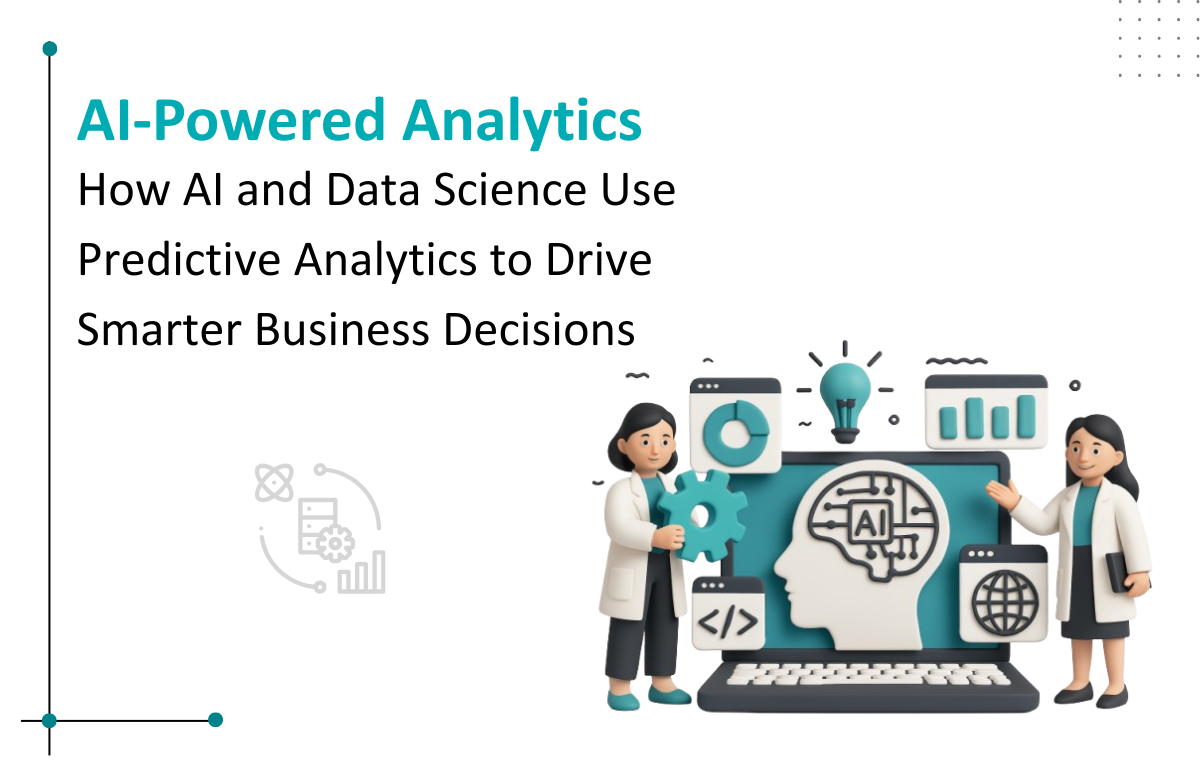
In today's digital age, businesses rely on data science to extract valuable insights from vast amounts of information. This data is crucial for making informed decisions and predicting future trends, yet managing large datasets presents challenges.
Artificial Intelligence (AI) is revolutionizing data science with its advanced algorithms and machine learning capabilities:
Explore how AI is transforming data science, and driving innovation across industries globally.
Data science involves tasks like collecting and cleaning data, which can be tedious and time-consuming for data scientists.
Automated Data Preparation (ADP), powered by AI, simplifies this process. It automates tasks like data cleaning and formatting, saving time and reducing errors. This ensures data quality, which is crucial for accurate analysis.
Increased Efficiency Frees up data scientists to focus on analysis and insights. | Reduced Errors Automates processes with higher accuracy than manual methods | Improved Data Quality Maintains clean and consistent data for reliable analysis |
ADP empowers data scientists to uncover valuable insights more effectively.
Imagine data scientists sifting through vast datasets, searching for hidden patterns and connections like detectives at a crime scene. Traditional methods can miss subtle relationships, keeping valuable insights buried.
AI-powered neural networks act as super detectives, quickly analyzing huge amounts of data. They uncover complex connections and patterns that humans might overlook.
AI excels at revealing hidden relationships. For example, it might link a customer's online shopping habits to their favorite music genre, helping businesses tailor their marketing and recommendations.
Using AI to detect patterns unlocks valuable insights for smarter decisions, innovation, and improved customer experiences.
In today's data-driven world, businesses rely on AI for predictive analytics to anticipate trends and optimize decisions. AI analyzes complex data patterns, predicts demand, optimizes resources, and enhances marketing strategies.
Key AI advancements include:
AI empowers businesses to foresee market shifts, allocate resources efficiently, and improve decision-making. Predictive analytics for business has become an essential tool for companies looking to stay ahead of the competition and make data-driven decisions that enhance their operations and strategies.
Data scientists excel at uncovering insights from complex data, but conveying these to non-technical stakeholders can be challenging. AI-powered chatbots bridge this gap by acting as virtual data guides. Users interact in plain language, receiving clear answers about the dataset.
Key benefits of AI chatbots:
AI chatbots democratize data insights, enhancing communication and decision-making across organizations.
Data security is vital for safeguarding sensitive business, financial, and customer information. AI advances provide powerful tools to detect and respond to cyber threats effectively.
AI and cybersecurity practices combine to fortify data protection, ensuring business continuity and trust.
In data science, professionals handle diverse roles, including optimizing processes and recruitment. AI enhances efficiency by automating key tasks:
While data science is known for its groundbreaking discoveries, daily tasks like data cleaning, code writing, and report generation can be repetitive and time-consuming. AI automation revolutionizes these processes, showcasing the AI automation benefits in data science:
AI's efficiency and accuracy in automating these tasks empower data scientists to delve deeper into complex problems and extract valuable insights, elevating their strategic impact within organizations.
AI can be opaque, but open-source AI models enhance transparency:
Flexibility: Companies customize without proprietary constraints, reducing costs.
Collaboration: Data scientists innovate and share knowledge in the open-source community.
Trust: Customers gain insight into AI decision-making, ensuring fairness and ethics.
This transparency improves data understanding and reliability, fostering a collaborative future in AI development. AI applications in industry are vast and varied, revolutionizing sectors such as healthcare, finance, manufacturing, and retail. From predictive maintenance in manufacturing to personalized medicine in healthcare, AI is driving efficiency and innovation across industries.
AI is reshaping data science across industries, streamlining operations, predicting trends, and fortifying data security. By automating tasks and enhancing AI in business decision-making through predictive analytics and intuitive tools like chatbots, AI empowers data scientists to uncover actionable insights that drive business success. Ethical AI practices and robust cybersecurity measures ensure transparency and trust, fostering collaboration and innovation. Embrace AI to unlock the full potential of data, paving the way for smarter strategies and sustainable growth in the digital age.

Business Development Executive